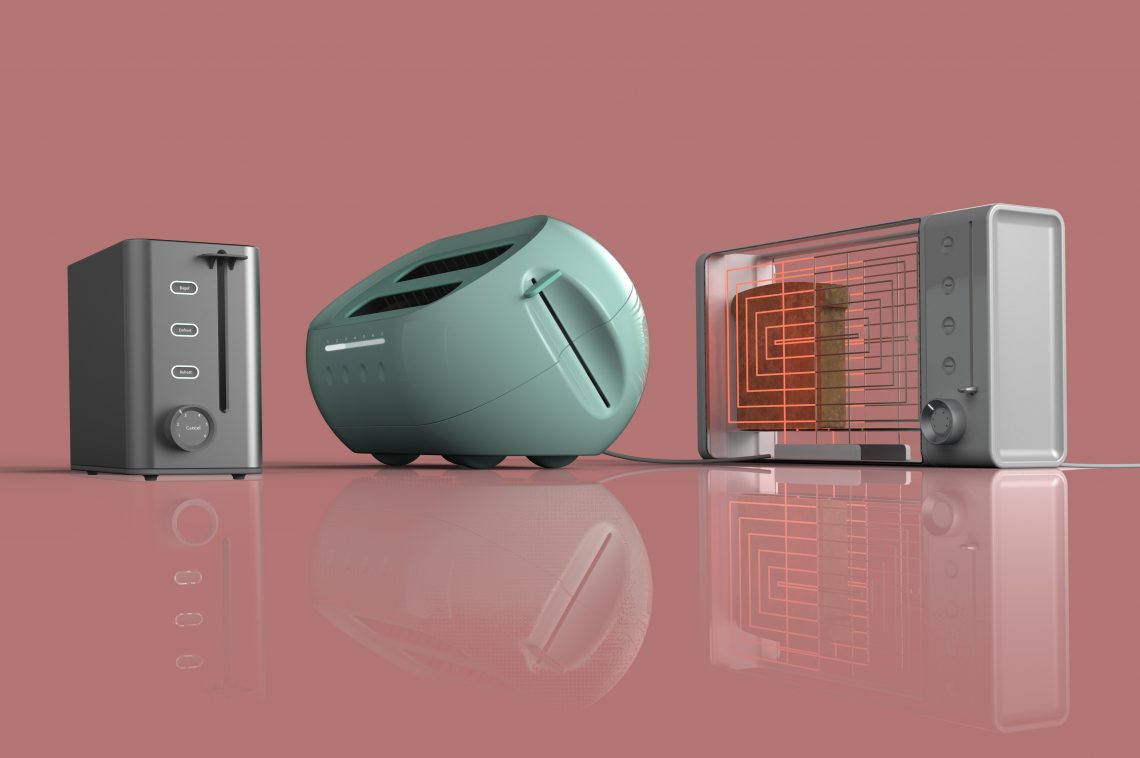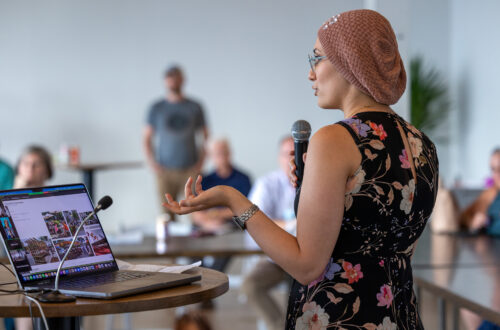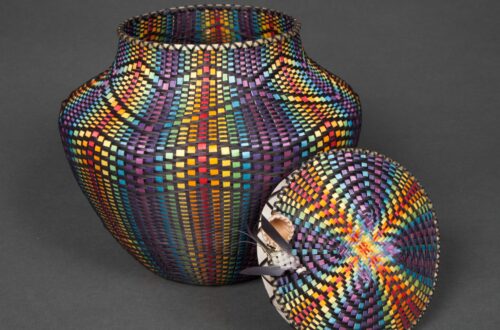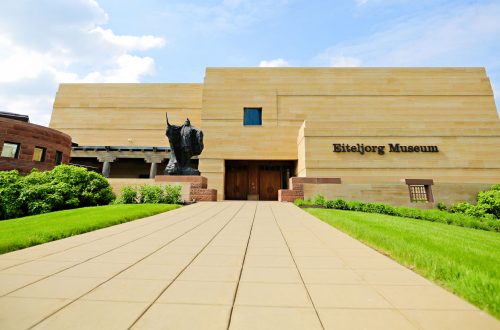A reusable epinephrine auto-injector; a minimalist household composter; an eco-friendly and contemporary ceramic and glass toaster: there’s no lack of innovation within University of Cincinnati alum Mary Friedl’s expanding portfolio. The industrial designer graduated from the university’s College of Design, Architecture, Art, and Planning last May 2020 and promptly won a competition for designing an eco-friendly toaster as a part of the Industrial Designers Society of America’s Sustainability Deep Dive 2020 conference.
With an overarching goal for creating empathetic and impactful design work, Friedl has delved into design research and work that promotes health and sustainability, whether through products purposed for medical environments or those of which simply bring people joy. Especially in a design realm in which notions of accessible and human-centered design are expanding far beyond older visions, Friedl lends a pair of fresh hands to the industrial design circuit.
“[It’s] exciting to me, seeing all the potential to make people’s lives better and designing for people who haven’t been considered in the past when they should have been considered,” said Friedl in reference to advancements in designing for wellness.
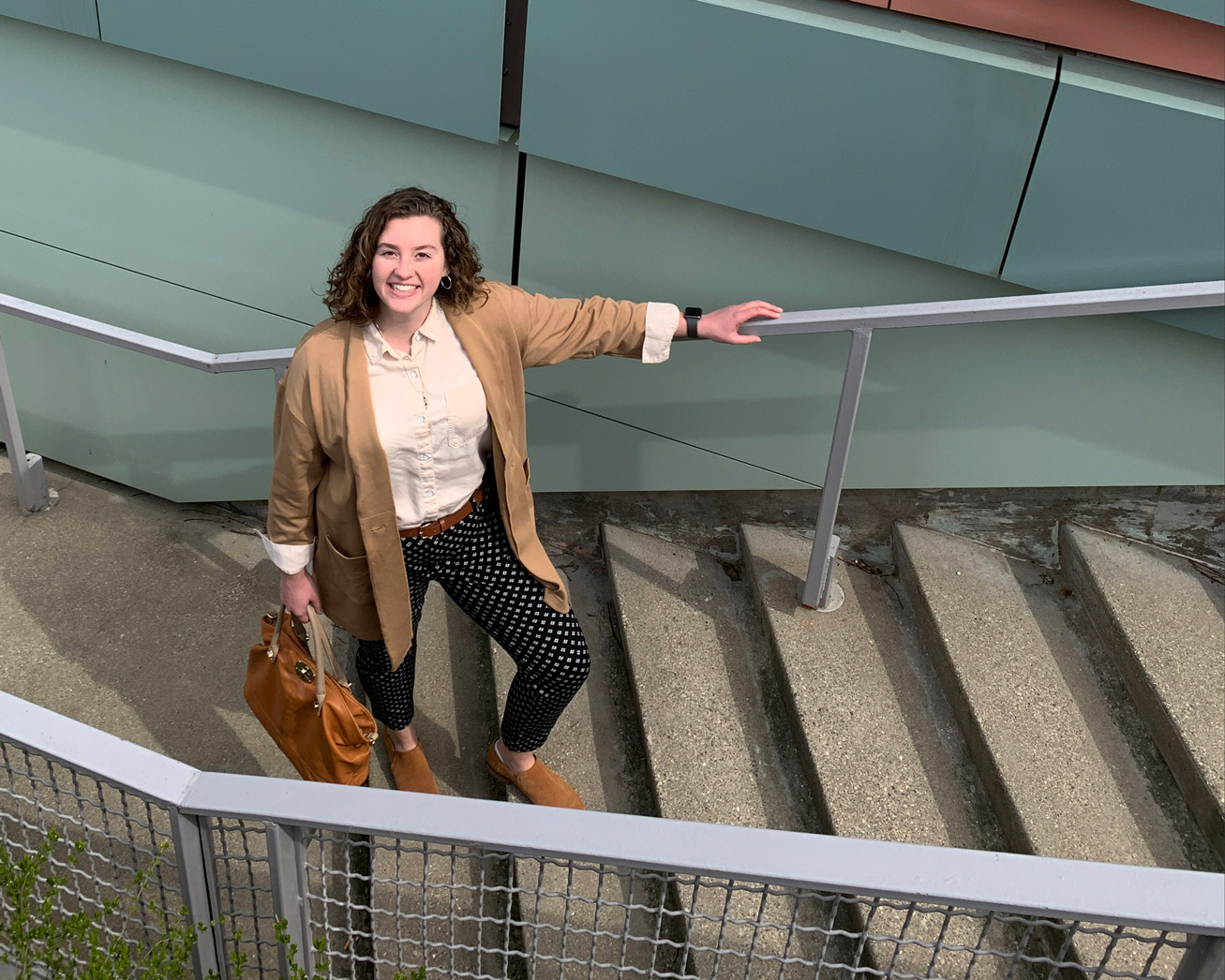
In the area of industrial design, the concepts of wellness, ergonomics, and empathy tend to intertwine naturally with design, as multi-user functionality often is a top concern. One of Friedl’s more recent projects—the Epiphany Epinephrine Auto-Injector—was the product of a joint venture between her college industrial design class and a nursing class, resulting in the reusable, dual-dose injector, which took design inspiration from the manageable, portable shape of products like AirPods and electric toothbrushes. The intuitive design supports the sometimes-urgent need for the device, and its reusable compatibilities respond to sustainability measures and even in times when epinephrine supplies are short.
Other projects by Friedl have been gathered throughout her five internship opportunities pre-graduation, from clawfoot tubs and glass bottle designs—which yielded her first on-the-market product—to heavier design research through Delve, a Madison, Wisconsin-based industrial design and engineering firm impacting the pharmaceutical, alternative energy, and fitness industries among many others. Currently, Friedl works for a Cincinnati-based company called Mammotome, which delivers solutions for breast cancer diagnostics such as tissue collection and marking, gamma detection, and lymph node biopsy.
Though the core, functional needs for the industrial design practice underscore Friedl’s approach to the job first and foremost, she takes extra care to forge a deeply humanistic and optimally sustainable method for creating design solutions for widely used and, at times, extremely important goods.
“As I learned more about the industrial design process and the role that we do play on the environment as designers, I made it my mission, or at least something that I’m constantly thinking about, to help and not hurt,” Friedl said.
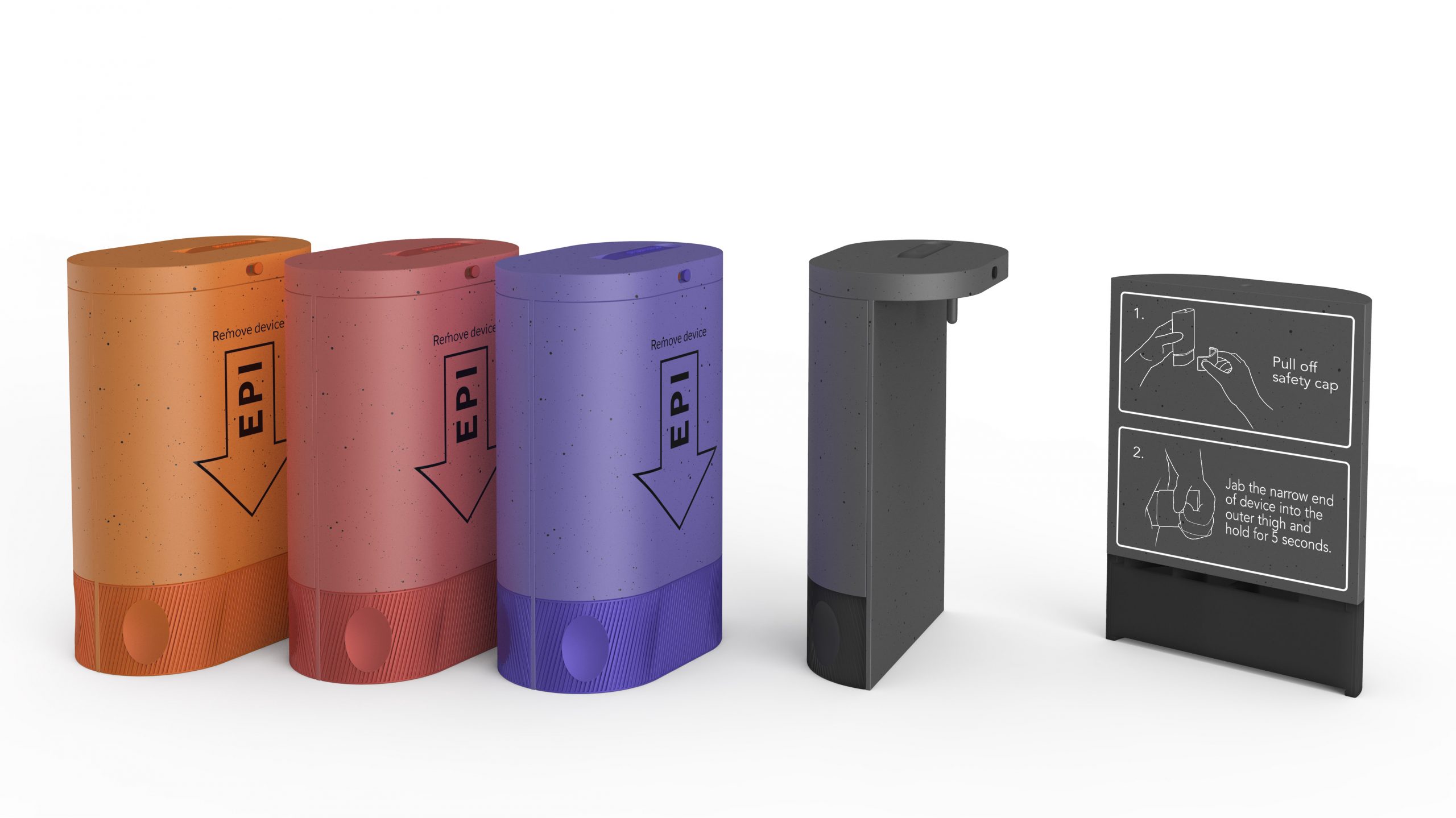
Being introduced into the field, it became apparent the impact design can have in accumulating waste and servicing unsustainable supply chains, but Friedl noted that as with most efforts at being sustainable, there’s a trade-off to everything.
“I had a little bit of a quarter-life crisis, where I was like ‘do I really want to do this, because I’m just creating waste.’ Then I realized that it’s better for someone like me who actually cares about sustainability to be in a design position as opposed to someone who won’t care,” Friedl said.
Despite the dire state of waste accumulation, especially in the U.S., Friedl finds inspiration in larger corporations churning results in sustainability. During the IDSA’s Sustainability Deep Dive event in 2020, attendees were treated to inspiring stories about efforts like sustainable transportation, the future of sustainable package design, and products like Nike’s exploratory Space Hippie sneaker, which is made of recycled materials and inspired by the concept of life on Mars where material is scarce.
Currently, Friedl is conducting front-end research for products at Mammotome, and has taken up pottery on the side. This personal feat has also come with an industrial design spin, as Friedl has started using one of her winnings from last year’s Sustainability Deep Dive—a Prusa i3 MK3S 3D Printer, provided by Autodesk—to create 3D crafting guides of pottery shapes that can then be created on the wheel. No matter the product or its function, for Friedl there is always room for a deeper consideration, and a way to make items function best for their human users.
Text: R. Collins
Photography: Mary Friedl

